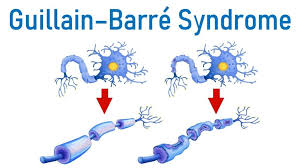Crohn’s Disease is a chronic inflammatory bowel disease that affects about 1.6 million Americans. Living with Crohn’s Disease can be difficult, and finding effective strategies to manage the symptoms is important to maintain physical and mental wellbeing. Self-care is a vital aspect of managing Crohn’s Disease symptoms to lead a healthy and comfortable life. In this article, we will discuss several tips for empowering self-care to manage Crohn’s Disease symptoms.
1. Dietary Changes:
Dietary adjustments can be an effective way to manage digestive symptoms caused by Crohn’s Disease. The specific diet plan would depend on the individual’s needs. However, the general recommendation is to limit intake of high-fat, high-fiber, and spicy foods, dairy products, and caffeine. Consuming small, frequent meals throughout the day instead of three large meals can help prevent flare-ups and improve nutrient absorption. Adding prebiotics and probiotics to the diet can also help improve gut health.
2. Stress Management:
Emotional and mental stress can exacerbate Crohn’s Disease symptoms, so finding effective stress management techniques can be helpful. Techniques like meditation, yoga, deep breathing, and visualization can help reduce stress levels and promote relaxation. Seeking professional help from a therapist or counselor can also help deal with emotional stress.
3. Exercise:
Physical activity can help reduce inflammation in the body and improve overall health. Engaging in moderate aerobic exercises like walking, swimming, or cycling for at least 30 minutes a day can help reduce inflammation, improve mood, and boost immunity. Low impact exercises like yoga, Pilates, and tai chi can also help with stress management.
4. Medication Compliance:
Medications prescribed by healthcare providers play a crucial role in managing Crohn’s Disease symptoms. Adhering to the medication plan as prescribed by the provider can help reduce inflammation, prevent flare-ups, and improve quality of life. It is essential to communicate any side effects and concerns promptly with the healthcare provider.
5. Social Support:
Living with Crohn’s autoimmune lung diseases can be an isolating experience. Connecting with others with the same condition can provide emotional support and reduce the sense of isolation. Joining support groups, participating in online forums, or seeking support from family and friends can provide encouragement and a sense of shared experience.
In short:
Self-care plays a crucial role in managing Crohn’s disease symptoms. Changes in diet, effective stress management, regular exercise, medication compliance, and seeking social support can empower individuals living with Crohn’s Disease to lead a healthy and fulfilling life. By following these self-care tips, individuals can lower inflammation, prevent flare-ups, and positively impact overall well-being. Seeking professional help from a healthcare provider, therapist, or counselor can offer additional guidance and support. Empowering self-care is an ongoing process, and small lifestyle changes can lead to significant benefits in managing Crohn’s Disease symptoms.



